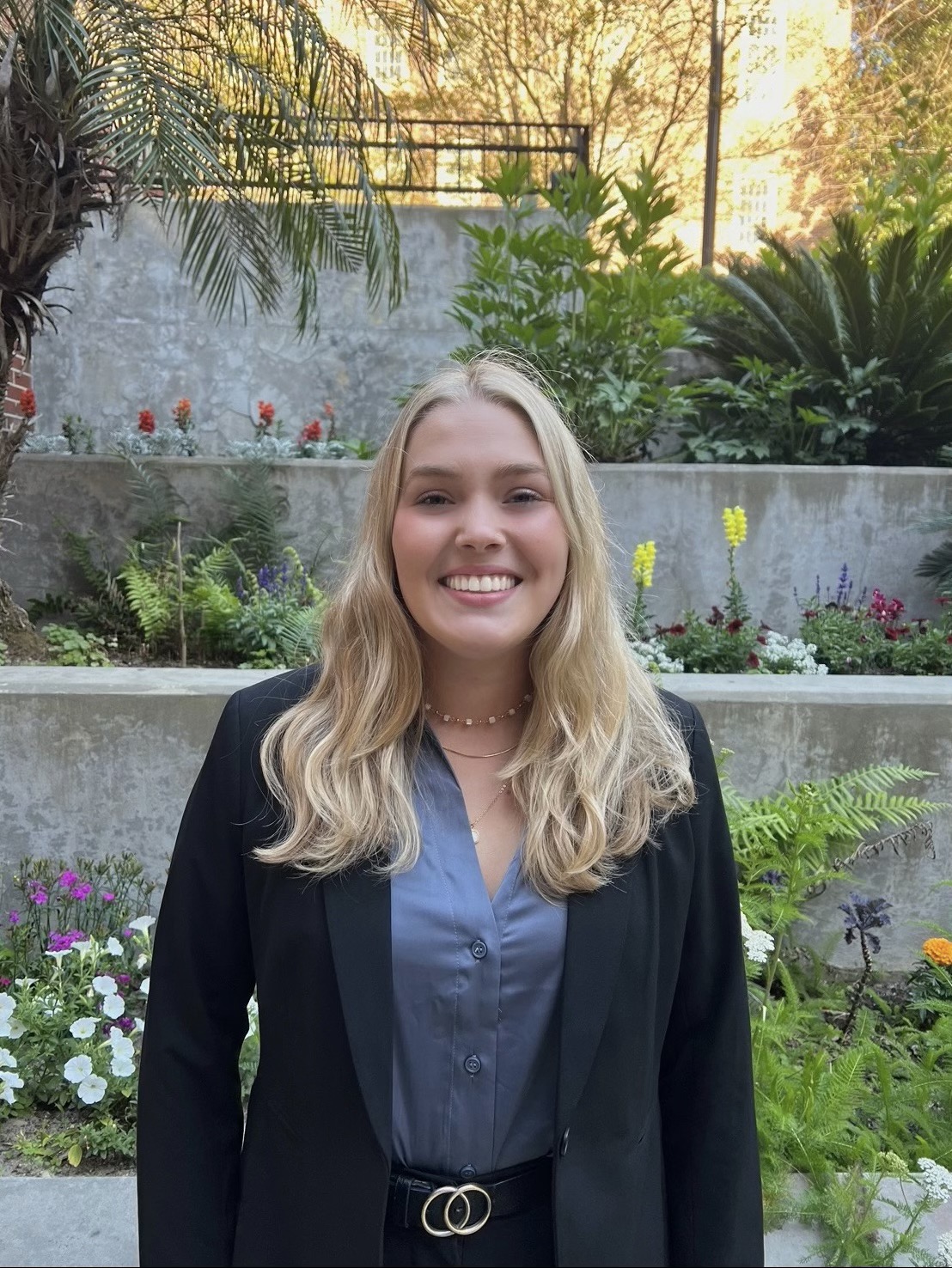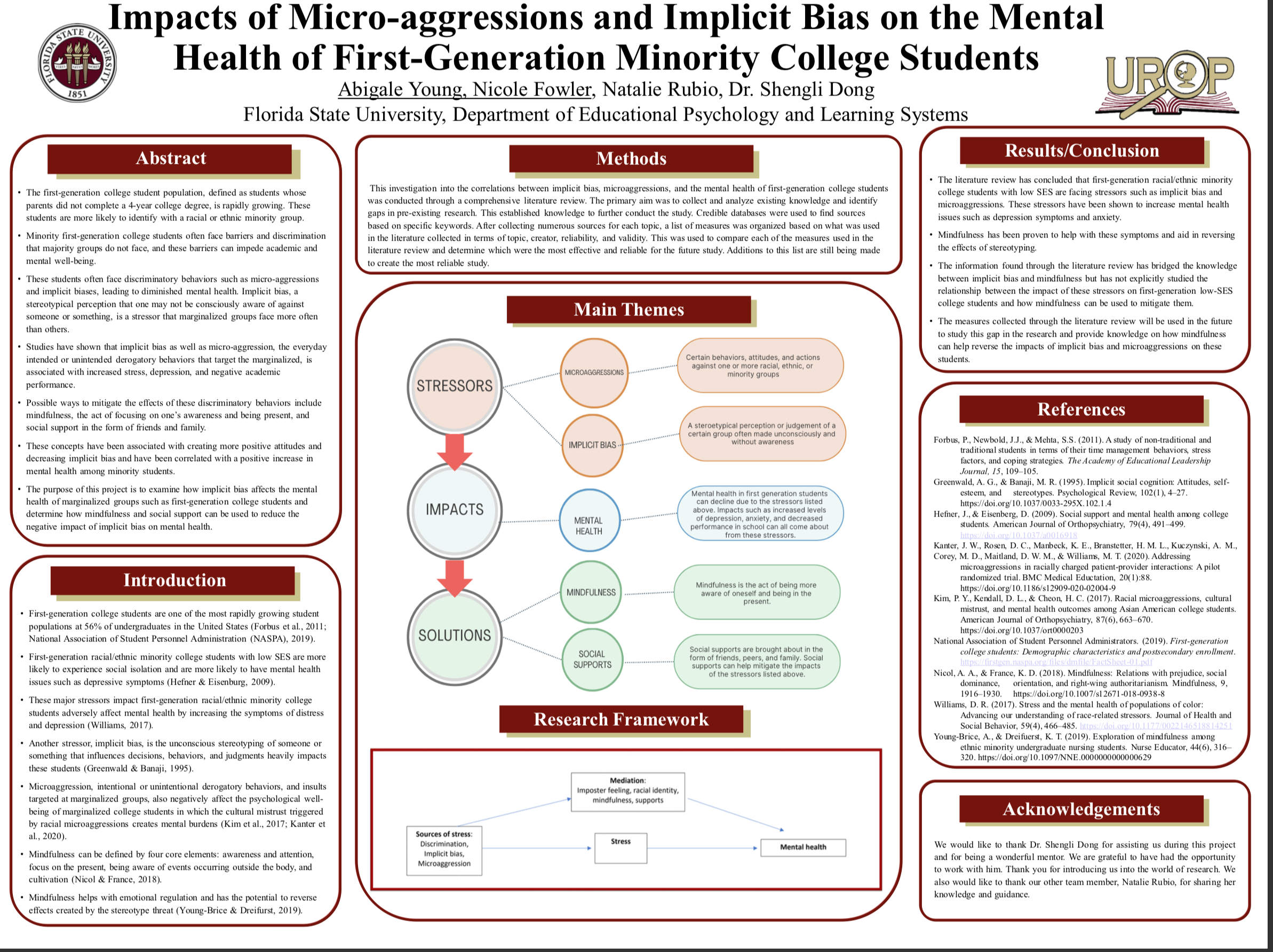Research Symposium
24th annual Undergraduate Research Symposium, April 3, 2024
Abigale Young Poster Session 3: 1:30 pm - 2:30 pm /45

BIO
Hello! My name is Abigale Young. I am a Sophomore studying behavioral neuroscience on the pre-med track. I hope to attend medical school after completing my degree and specialize in psychiatry or neurology. I am from Ponte Vedra Beach, FL and absolutely love to learn. Whether that be a new subject in school, or one of the many hobbies I tend to pick up, I have always had a passion for knowledge. Some of my current hobbies include playing the guitar, painting, and reading. Perhaps it’s this tendency of mine that has made me truly enjoy my time in UROP. I have had the wonderful opportunity to participate in research in Dr. Shengli Dong’s lab and have gained essential skills and experience. I hope to continue participating in undergraduate research for the remainder of my time here at FSU. I cannot be more grateful for the terrific introduction into the world of research that I have gained over this past school year.
Impacts of Micro-aggressions and Implicit Bias on the Mental Health of First Generation Minority College Students
Authors: Abigale Young, Shengli DongStudent Major: Behavioral Neuroscience
Mentor: Shengli Dong
Mentor's Department: Department of Educational Psychology and Learning Systems Mentor's College: College of Education, Health, and Human Sciences Co-Presenters: Nicole Fowler
Abstract
The first-generation college student population, defined as students whose parents did not complete a 4-year college degree, is rapidly growing. These students are more likely to identify with a racial or ethnic minority group. Minority first generation college students often face barriers and discrimination that majority groups do not face, and these barriers can impede on academic and mental wellbeing. These students often face discriminatory behaviors such as micro-aggressions and implicit biases, leading to diminished mental health. Implicit bias, a stereotypical perception that one may not be consciously aware of against someone or something, is a stressor that marginalized groups face more often than others. Studies have shown that implicit bias as well as micro-aggression, the everyday intended or unintended derogatory behaviors that target marginalized groups including the target population of the current, is associated with increased stress, depression, and negative academic performance. Possible ways to mitigate the effects of these discriminatory behaviors include mindfulness, the act of focusing on one’s awareness and being present, and social support in the form of friends and family. These concepts have been associated with creating more positive attitudes and decreasing implicit bias and have been correlated with a positive increase in mental health among minority students. The purpose of this project is to examine how implicit bias affects the mental health of marginalized groups such as first-generation college students, and determine how mindfulness and social supports can be used to reduce the negative impact of implicit bias on mental health.
Keywords: Mental Health, First-Generation, Implicit Bias, Micro-aggressions


